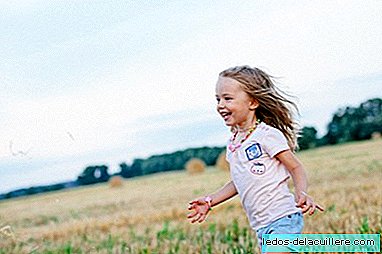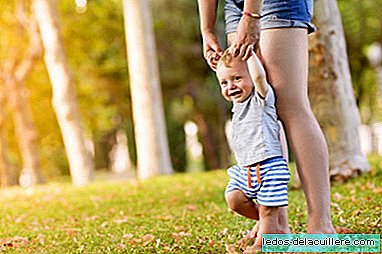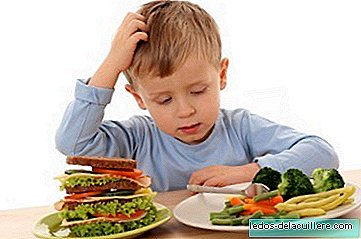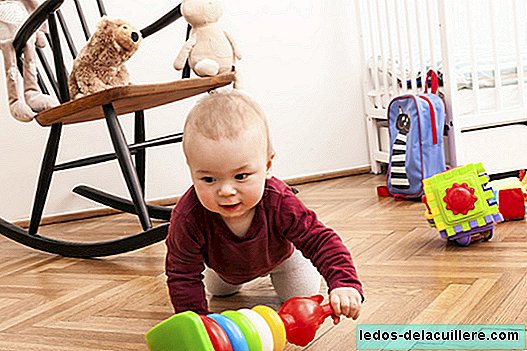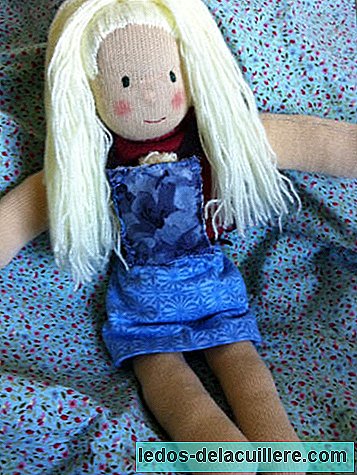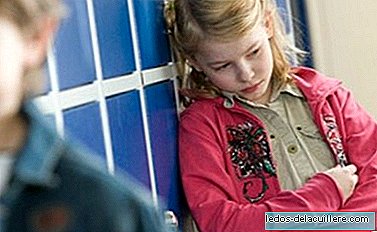
Bullying, which we are talking about this week, is a real situation. We may have suffered ourselves as children, but we have ended up denying its severity or assuming it as normal. As victims, aggressors, participants or observers, it has been something that we have had in our vital experience and that we want to prevent from happening to our children.
One of the issues that is less understood is that bullying and school violence involves everyone who observes it, not only to the victim and his aggressors. Other children usually know it before adults but have no tools to act.
Let's talk about them, about the observers, and we are going to offer you some advice so that you can, later, apply them to your children, telling them about this problem and explaining how to act if they detect that a partner is a victim.
What is not bullying?
Children fight sometimes. It is not that we should accept aggressiveness as a relationship formula, but we must understand that not all fights are signs of bullying. They may even want to hurt themselves in the middle of a fight, children who had been friends and who can become one again.
Nor is it that the weakest or the one who loses the fight is being harassed, although without a doubt it is necessary to intervene. An insult, a mockery, an isolated fight are not tolerable, we must act, but they are not harassment.
No. It's not about that. Harassment is a situation repeated over time, which manifests itself in different forms of abuse, in which the victim is or ends in a condition of inferiority in which the aggressors will be primed to maintain harassment actions.
There are very serious situations that we should not consider harassment, and are those that refer to criminal acts such as sexual assaults, the use of weapons, death threats or those aggressions that put the integrity of the victim or his life at risk. In those cases we no longer talk about harassment, they are crimes and, in addition to talking to the school, we must report.
How to act against school abuse?
When we, in our childhood, we were spectators of school violence Maybe we didn't know what to do. There was, possibly, the same awareness of the seriousness of the problem and no one understood how serious it was. But now things have changed and our children can help the victims, recognizing the problem and warning adults that they can do something.
When we observe, and I mean in any circumstance, abuse or an act of violence, we may be afraid to act for fear of the consequences, to be ourselves the next victims. The same thing happens to children.
But to do nothing is to become accomplices and we will be giving our approval to the abuse. Today we would denounce a neighbor who beats his wife, parents who attack their children or we would act if we saw a crime, notifying the authorities if we are not able to avoid it directly. The same goes for bullying.
When the child sees a behavior of bullying You should know that you should not side with the aggressors, not participating or laughing at them. Rather, they should try to get close to the suffering child and talk to him, to explain how he feels and can encourage him to ask his parents or teachers for help directly.
Let's give a very typical example: the chubby girl to whom a couple of classmates make humiliating comments. If the other three or four friends recriminate their attitude and approach the despised girl, they can do a lot to prevent teasing and isolation encysting the relationship. However, if they perceive that the girl is not being harassed and the situation worsens, becoming the strongest stalker group, they should know that it is right to go to an adult.
Children as observers of bullying
If the harassment is already established facing directly a group of aggressors may not be the wisest. What needs to be done is to talk to the parents themselves, telling them about the situation or going to a trusted teacher and asking the tutor to organize debates or take appropriate actions to help the victim.
Of course, if the situation is very serious and the victim is at risk, the child should know that he has to go immediately to a responsible adult. Many schools have action programs for these cases but it is necessary to notify when they meet so they can get going. It's everyone's responsability.
However, if before a process of school violence, aggressors feel without group support, especially with younger children, their behavior can be redirected. Children themselves, if they reject these actions and do not stay out of the way when a child is isolated or abused by others, can stop the process.
Teaching our children that it is not funny to make fun of others or harm them, we help them to take the right attitude to the first symptoms.
That is not chivarse, is to act with justice. Silence is what aggravates bullying. The child should know that he will not be alone and that adults will help him and believe it, that he can go to them to tell what is happening.
Most cases will be resolved positively if you talk about it soon and our children, aware that abuse should not be tolerated, will no longer become active or passive accomplices, or observers of violence, but in support that the system needs to go around bullying



